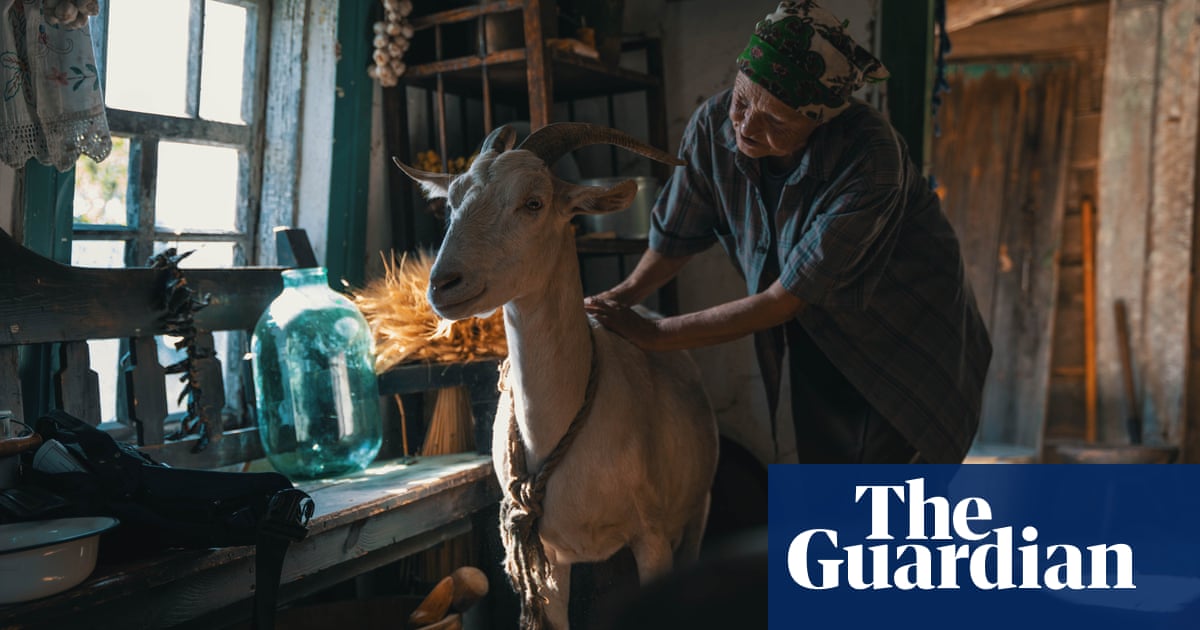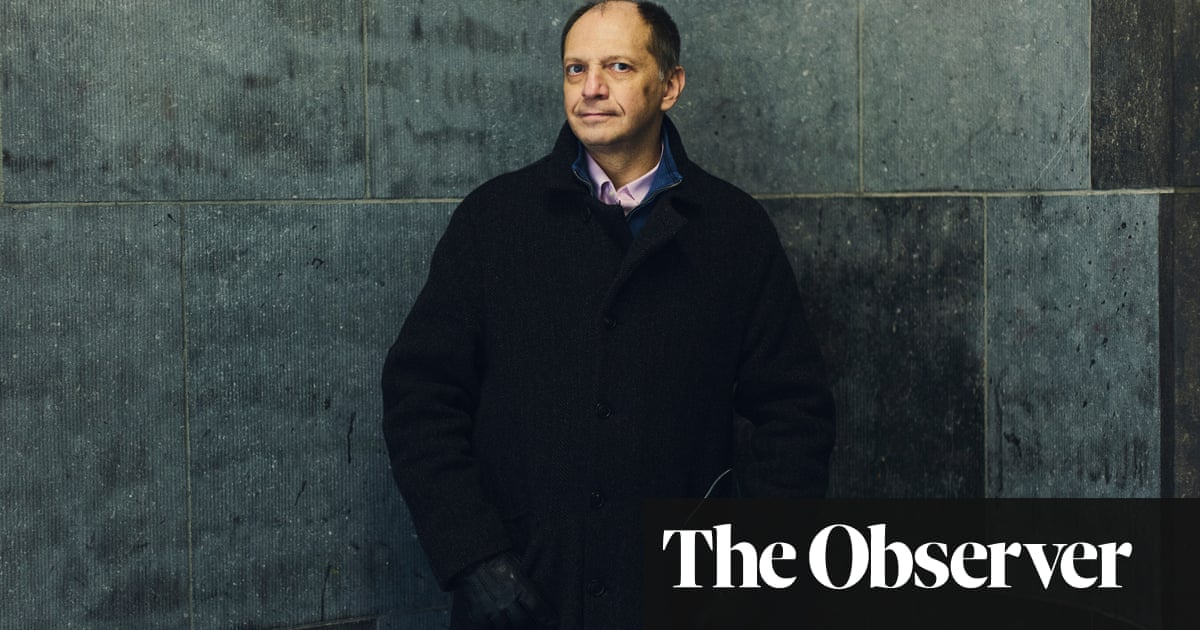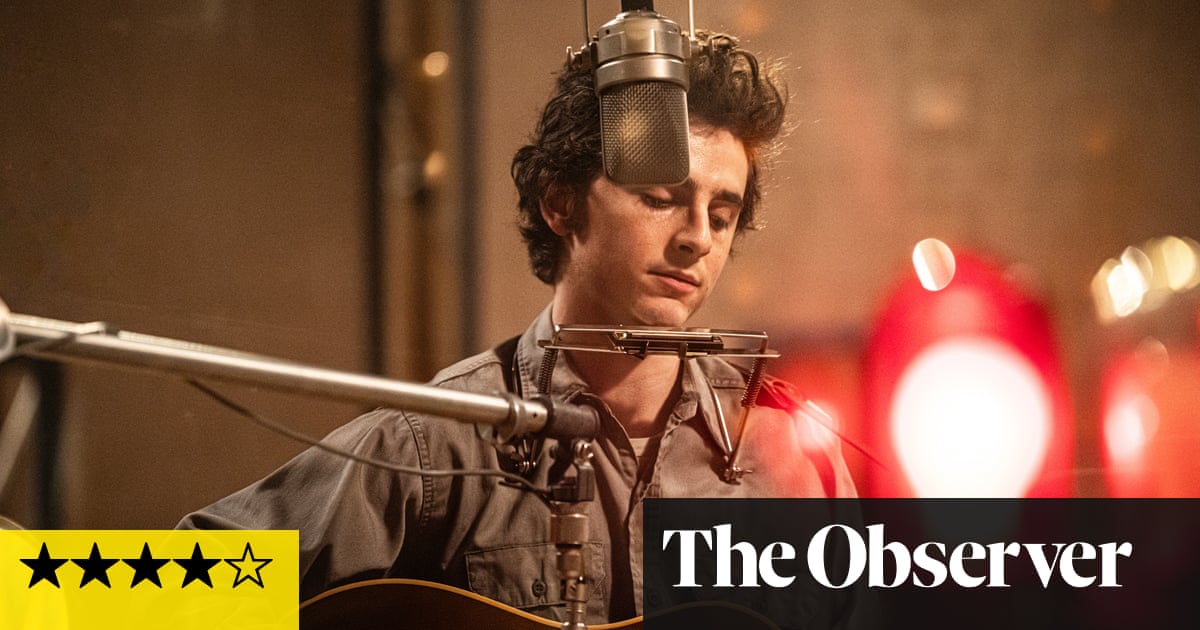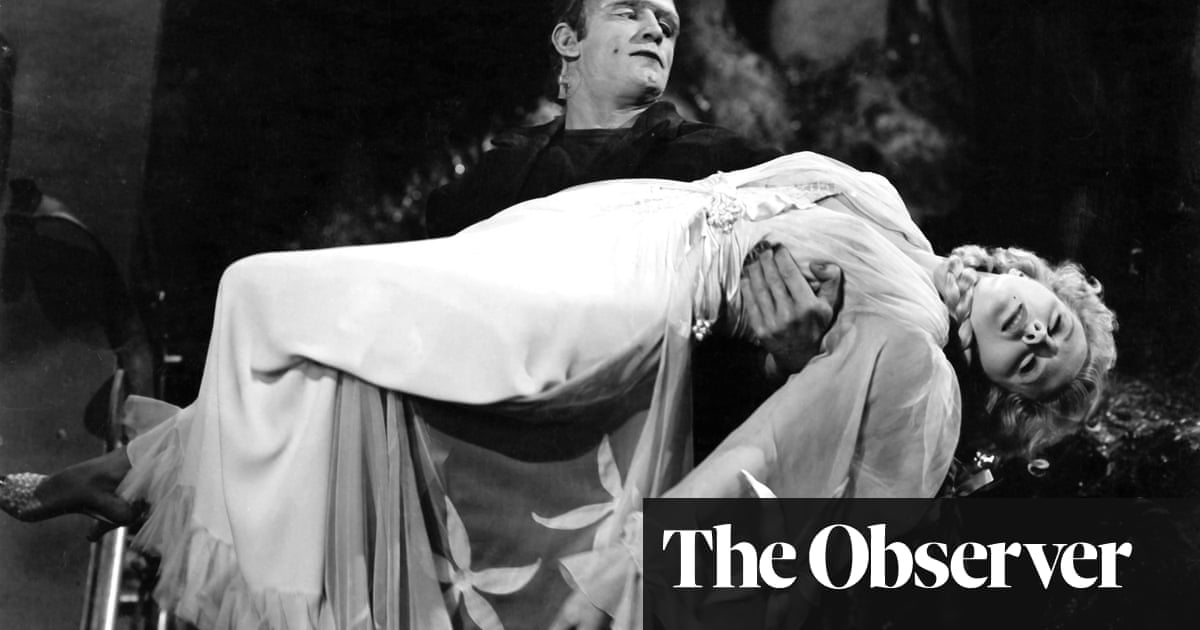The American director Richard Linklater has one of the great, eclectic film-making CVs: from classics such as Dazed and Confused to School of Rock, Before Sunrise to Boyhood, which was filmed with the same cast over 12 years. That versatility is seen again in his latest movie, Hit Man, released earlier this year to critical and audience acclaim and now on Netflix. A rare foray for him into the comedy-thriller genre, it tells the trueish story of a nondescript college professor (an excellent Glen Powell) who has a side hustle as an undercover operative for the New Orleans police, pretending to be different hitmen in order to illicit arrests. Next year he releases Nouvelle Vague, shot entirely in French. Linklater is 64 and lives in Austin, Texas.
There’s a line early on in your latest film: “Hitmen don’t really exist.” You mean that they are, essentially, an invention of Hollywood films. Were you surprised by this fact?
No, I’m completely amused and thrilled by it. I’ve known this for 25-plus years: hitmen are like snuff films, they don’t really exist. There’s not one record of a hitman being arrested. This is a myth, but one people believe so thoroughly because of pop culture – movies and TV mostly. [A hitman] is just a great character and we love the idea of them too much – even though shouldn’t we be relieved that there aren’t any?

Isn’t there the one famous exception, that Woody Harrelson’s dad was a hitman?
Well, he was in a mob. He wasn’t just a lone gun. There are mob killings all the time. There are drug-cartel killings. What we’re saying isn’t real is the retail hitman: “I don’t know you. You don’t know me. I’m a lone killer.” That’s the thing that makes no sense. I’ve watched surveillance videos of someone handing someone $2,000 to kill somebody. You think that person believes this person is risking the death penalty in a state like Texas for premeditated murder for $2,000? It’s crazy!
What’s another example of a character or trope beloved of films that just doesn’t exist in real life?
Oh well, every western ever made. Films are a great place for myths: Dirty Harry, most cops, things with law and crime, To Kill a Mockingbird, or these perfect people like in some Frank Capra movie.
When people recognise you, is there a film of yours they often want to talk about? You must get all ages and films now…
I’m appreciating that, the older I get. I’ll meet people who say: “Oh, my kids love School of Rock.” Or Dazed and Confused. And I’ve made enough of them now, maybe there’s something for everybody at this point. I don’t know, I’ll take it!
Is there any genre you wouldn’t touch?
People are like: “Will you ever make a horror movie?” Or: “Will you ever make a big action film?” I don’t know. If I don’t believe certain things, or it doesn’t interest me that much… but never say never. Making a thriller like this probably wasn’t on my dance card, but I was trying to tell this story. And I love being taken in a direction where you have to deliver something you haven’t quite done before.

When young film-makers ask you for advice, how do you feel?
Besides sad for them?
Would your career not be possible now?
I got the last whiff of the old studio system that’s long gone, where they would take a chance on a younger director and say: “We like your script, here’s $6m, go make a movie.” That’s just not what happens now. So I guess I’ve been lucky, and I didn’t want much. Just wanted to make my next film. I didn’t really have much ambition beyond that.
With a film like Boyhood, where the production ran over many years, are you always confident it will come together?
I’ve always had that French new wave notion that a film should just be an extension of your life. So I was no more confident that that would work out as I was my own life would work out, you know? And it’s like, hey, an asteroid could smash into our planet any second. You could get hit by a bus. But those things usually don’t happen.
You are filming an adaptation of the Sondheim musical Merrily We Roll Along with a cast including Paul Mescal and Ben Platt. That – like the timeline in the musical – is going to be shot over 20 years, completing in around 2040. That’s quite a commitment…
Yeah, well, there’s a certain level of actor, Ben Platt, Paul Mescal, you don’t have to say: “Are you going to be acting in 20 years’ time?” That’s who they are. It goes without saying. Boyhood was kind of floating in the breeze of my own ideas of life and everything. But with this one, we’ve got such a strong score and we’ve got a great partner in [the late] Stephen Sondheim. So we rally around him.
You’ve just finished shooting a movie called Nouvelle Vague, which recreates the making of Jean-Luc Godard’s 1960 film Breathless. It’s shot in French – where does that rate as a challenge?
The most fun challenge of all time. I can’t explain how happy I am with that crazy film, I love it so much. I always said, every film-maker should make one film about making a film, and this is in the spirit of one of my favourite little moments in film history.
Merrily We Roll Along will take you to at least 80. Will you always make films?
I don’t know what would prevent that. Even bodily, it’s a physically demanding thing, but I have a picture on my wall of John Huston making [the 1987 film] The Dead. He’s sitting in a chair hooked up with an oxygen mask making his last film and I go: “That looks pretty good!” I’m not even a smoker, so maybe I won’t need the oxygen mask. To be in my 80s or let’s go for 90s… but who the hell knows? I have a lot of other interests, but it’s been a fun way to process the world.

 1 month ago
38
1 month ago
38













































